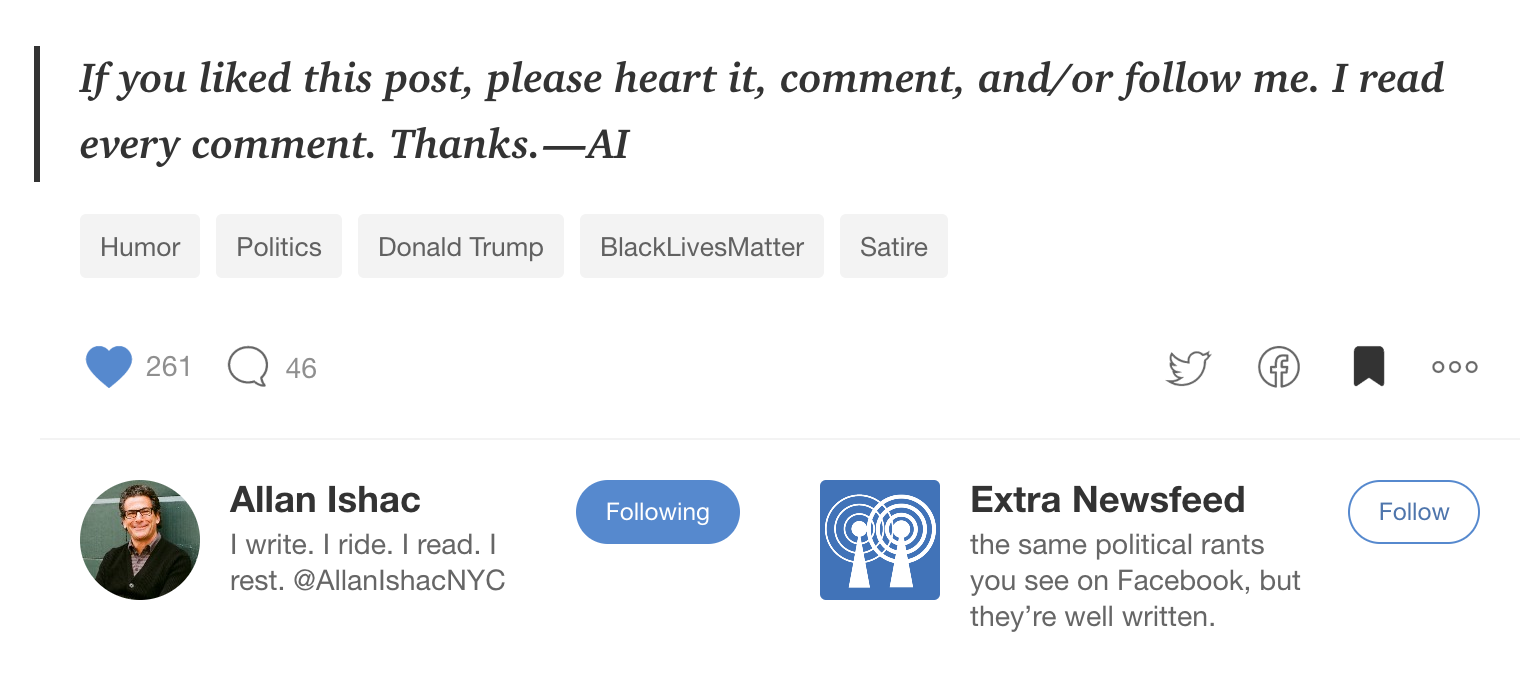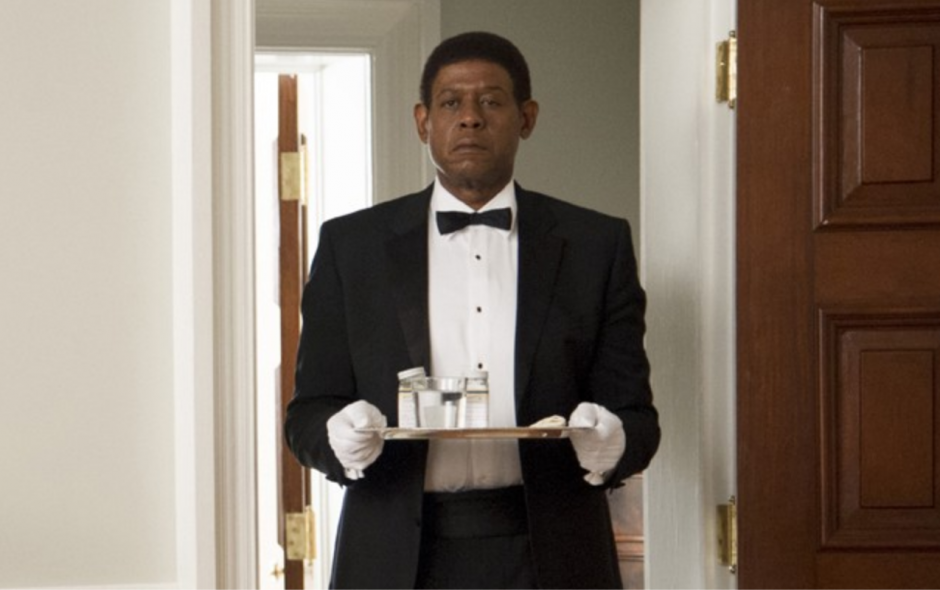There’s a sucker born every minute.
–P.T. Barnum (maybe)
Americans have lost their skills of critical thinking as applied to reading articles on the internet. Don’t believe me? Read the article on the firing of a White House butler by Allan Ishac … as well as a few of the comments. No, really. Read it now. It’s a quick read. I’ll wait.
[cue: background music]
Welcome back.
At First Glance
Some readers will see the article as highly partisan and love it because it lambastes the forty-fifth President. Others will see it as partisan and hate it because it lambastes the forty-fifth President. Keep in mind, opinions will vary and your opinion will be based on your subjective life experiences.
Second Look
Some will take Ishac’s article as factual simply because it’s a part of a Medium publication or because it feeds into their bias about (for or against) the forty-fifth President
FACT | noun | 1: a thing done, 3: the quality of being actual; 4a: something that has actual existence, 4b: an actual occurrence, 5: a piece of information presented as having objective reality
A number of readers will still interpret the piece as factual even though a few elements—some obvious, some subtle—seem out of kilter.
Like Jiminy Cricket said, “Let the context be your guide.”
(Jiminy Cricket never said that, but he did say, “let your conscience be your guide.” I modified the quote for the purposes of this article.)
With a context of facts or truth, any statement can be twisted to mean anything without a common context or set of facts. If I’m in Toronto in January and I’m asked how’s the weather outside and I respond, It’s 20 degrees out. It’s terrible, as a native Floridian 20-degree weather is brutally cold. To a native of Toronto, 20-degree weather might be considered lovely. See? It’s all about context and frame of reference.
But back to the article …
If things you read don’t seem to add up, don’t accept them, take a minute or two and sort them out.
One of the things that might seem off-kilter in Ishac’s article is the very first image. The man in the photo might look a little familiar. There’s a reason for that, he a famous man. Yes, it’s an image of Cecil Gaines, but “Cecil Gaines” is a character from the 2013 movie, “The Butler,” starring Forest Whitaker in the title role. With the aid of Google’s Image Search, you can find a treasure trove of information on that particular image and others similar to it, including links to articles about the film. Or you can Google “Cecil Gaines.” And surprise, surprise! It takes you to this page about a man named Eugene Allen, the real person the fictional character Cecil Gaines is based upon.
There are other clues to the veracity of the piece: the tags at the bottom of the article. And the author gives not one, but two tags as to his intent in writing the piece.

Also, there’s the author’s previous works. Take a look at Ishac’s profile page. He’s used the “humor” tag more than once. So he has a history of writing humorous/satirical essays.
Critical Thinking
When you take all the information available in plain view, it’s easy to see that the Ishac’s article is written as entertainment. Those familiar with “The Butler,” Forest Whitaker, or Cecil Gaines readily saw that.
To those of you still reading this and are wondering how in the hell was I supposed to know all that it was a dang movie? You’re not. There’s no way anyone can know everything. You weren’t intentionally duped or misled or played for a fool, as the tags were readily available at the bottom of the piece. But everyone has a responsibility to arm themselves with the truth to prevent accidental dupery.
These days we Americans have become so entrenched in our opinions that the world has become binary. Either-or. Win or Lose. Us vs Them. Enough already. Those practices predispose us to accept without question that which stokes the bonfires of our biases as well as that which we regard as the “other.”
And we have the nerve to wonder why the country is so divided.
People, we owe it to ourselves to practice discernment in determining what is fact and what is fiction and how we allow that to share our opinions and more importantly our actions.
Love one another.





Eileen Hahm says:
Dear Clay,I greatly valued reading this. I am very glad to be enriched by your sharings and writings!Warm regards,,Eileen
Clay Rivers says:
Eileen, Thanks for checking out the article. I’m glad you enjoy them. Keep those cards and letters coming! —Clay.
Colette Clarke Torres says:
Amen!
Clay Rivers says:
And amen!